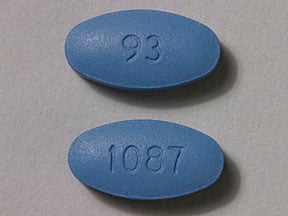
Cefaclor ER Coupons & Savings Card – Discount Prices from $41.14
My prescription
Edit
500MG, Cefaclor ER (14 Tablet Extended Release 12 Hours)
Select pharmacy

CVS
$41.14
COUPON PRICE
Walgreens
$94.17
COUPON PRICE
Walmart
$263.47
COUPON PRICE
Albertsons
$283.79
COUPON PRICECefaclor ER savings card
Show this card to your pharmacist
CVS
$41.14
BIN
ID
PCN
GRP
019876
LH05BDDC39
CHIPPO
LHX
Powered by
More prescriptions for urinary tract infection
More prescriptions for urinary tract infection
Cefaclor ER dosage forms
Dosage Quantity Price from Per unit 500MG 14 Tablet Extended Release 12 Hours $41.14 $2.94 500MG 100 Tablet Extended Release 12 Hours $181.47 $1.81
| Dosage | Quantity | Price from | Per unit |
|---|---|---|---|
| 500MG | 14 Tablet Extended Release 12 Hours | $41.14 | $2.94 |
| 500MG | 100 Tablet Extended Release 12 Hours | $181.47 | $1.81 |
Cefaclor ER Warnings
Cefaclor is a medication that requires careful consideration before use due to its potential risks and necessary precautions. Below is a summary of critical safety information and warnings:
Severe Allergic Reactions: There is a risk of experiencing severe allergic reactions, including life-threatening conditions like facial swelling, shock, and anaphylaxis (throat closure). If you have a known allergy to antibiotics, especially penicillin or cephalosporin antibiotics, inform your healthcare provider. Seek immediate medical assistance if you experience symptoms such as hives, rash, red skin, swelling of the lips or tongue, or difficulty breathing after taking cefaclor.
Infectious Diarrhea: Taking antibiotics like cefaclor may increase the risk of infection by Clostridioides difficile (C. diff), leading to a potentially serious form of diarrhea. This infection can cause rapid heart rate, foul-smelling diarrhea, fever, nausea, and frequent bowel movements, sometimes up to 15 times per day. If you exhibit these symptoms, seek medical attention promptly for testing and treatment of C. diff infection.
Antibiotic Resistance: It is crucial to follow your prescription instructions precisely when taking cefaclor. Deviating from the prescribed duration or using this medication for unapproved conditions can increase the risk of developing drug-resistant bacterial infections, which are difficult and potentially life-threatening to treat.
Contraindications: Cefaclor is contraindicated in individuals with a severe allergy to cephalosporin antibiotics. If this applies to you, consult your healthcare provider before using this medication.
Always consult your healthcare provider if you have any concerns or questions about taking cefaclor, and ensure you adhere to their guidance and the prescribed dosage.
Cefaclor ER Side Effects
Common side effects:
- headache
- runny nose
- diarrhea
- nausea
- stomach upset
- vomiting
Less common but important to monitor:
- vaginal inflammation
- yeast infections
- stomach pain
- cough
Serious side effects:
- persistent nausea or vomiting
- severe stomach or abdominal pain
- yellowing of the eyes or skin
- dark urine
- unusual joint pain
- signs of infection (persistent sore throat or fever)
- easy bruising or bleeding
- changes in mood or mental state (confusion)
- severe intestinal condition (C. difficile infection)
- severe allergic reactions (rash, itching, swelling, severe dizziness, trouble breathing)
